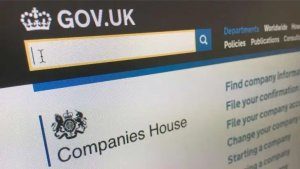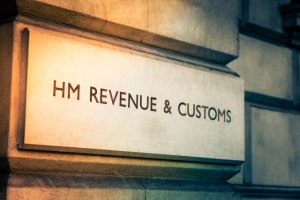- Corporate
- Corporate recovery, restructuring & insolvency

Longer Reads
Coronavirus & SMEs – what support is available for businesses? (updated)
The government has worked quickly to announce and introduce a series of tax and financial measures to support businesses affected by the disruption. The key measures are summarised below.
4 minute read
Published 7 May 2020
Key information
- Specialisms
- Business
Startups and small and medium sized companies (SMEs) are facing unexpected problems caused by the COVID-19 virus and the economic fallout from the lockdown imposed by the government.
The government has worked quickly to announce and introduce a series of tax and financial measures to support businesses affected by the disruption. The key measures are summarised below.
Bounce Back Loans
Small businesses are able to apply for quick and easy-to-access loans from 4 May 2020. They will be able to borrow between £2,000 and £50,000 with the cash arriving within days. The loans will be 100% government backed for lenders, and businesses can apply online through a short and simple form.
Small business owners can apply to some 11 accredited lenders (including the five largest banks) by filling out a simple online form, with only seven questions.
The government has agreed with lenders that an affordable flat rate of 2.5% interest will be charged on these loans. And any business that has already taken out a Coronavirus Business Interruption Loan of £50,000 or less can apply to have these switched over to the new scheme. Note that you cannot otherwise take out one of these loans if you have already claimed under another Coronavirus Business Interruption Loan.
Under the scheme small businesses can borrow between £2,000 and £50,000. The government will provide lenders with a 100% guarantee and cover the cost of any fees and interest for the borrower for the first 12 months. No repayments will be due during this period to enable firms to get back on their feet
You can apply for a loan if your business is based in the UK, was established before 1 March 2020 and has been adversely impacted by the coronavirus. Businesses from any sector can apply, except banks, insurers and reinsurers, public-sector bodies and state-funded schools.
Note that the borrower always remains 100% liable for the debt.
Coronavirus Job Retention Scheme
This scheme aims to encourage employers to retain employees on the payroll even where they are unable to work as a result of the disruption. Where an employer notifies affected employees that they have been “furloughed”, HMRC will reimburse the employer for 80% of the workers’ wage costs, up to a maximum of £2,500 per month for each worker, with effect from 1 March 2020. Note that changing an employee’s status to that of a furloughed employee is subject to employment law and may well require the consent of the employee. For further information on the employment law aspects of the scheme, please read our recent article.
Statutory Sick Pay
Entitlement to Statutory Sick Pay (SPP) is to be extended to employees who are self-isolating with effect from the first day of sickness or absence. It has been announced that SMEs will be able to reclaim the SSP paid for such sickness or absence, up to 2 weeks’ SSP per eligible employee. There will be no requirement for a GP’s note to be provided by the employee.
Coronavirus business interruption loan scheme
The British Business Bank will make this scheme available through participating lenders including many high street banks. The aim is to ensure that SMEs are able to access the facilities they need, e.g. term loans, overdrafts and invoice and asset finance. Under the scheme, lenders will benefit from a free Government backed guarantee for 80% of the value of the facility taken out by borrowers. The value of the facility value under the scheme is limited to £5 million. Note that the borrower taking out the facility remains liable to repay the full amount, but the facility will be interest-free for the first twelve months, there will be no arrangement fee, banks have agreed that they will not require personal guarantees for loans up to £250,000, and they cannot require security over any person’s principal residence. Applications should be made to your lender (not to the British Business Bank) as soon as possible.
VAT deferral
All UK businesses are able to defer their VAT payments for three months, for the period from 20 March until 30 June 2020. Businesses will be given until the end of the 2020/21 tax year to pay VAT that accrues in this deferral period. The deferral period applies automatically, no application is required and no VAT payment will need to be made during the period.
Cash grants for small businesses
A £10,000 cash grant is available for smaller businesses in any sector that pay little or no business rates as a result of small business rates relief, rural rate relief and tapered relief. Businesses that are eligible will be contacted by their local authorities and there is no need to apply.
Retail, hospitality and leisure sectors
Businesses in these sectors will benefit from a 12 month business rates holiday for the 2020/21 tax year. This will apply to business properties used wholly or mainly as shops, restaurants, cafes, pubs and bars, cinemas and live music venues, for assembly and leisure, including sports grounds, theatres and gyms, or as hotels, guest and boarding accommodation or self-catering accommodation. The relief will be applied automatically to the next council tax bills of eligible businesses.
In addition a cash grant of up to £25,000 is available for smaller retail, hospitality and leisure businesses that have premises with a rateable value between £15,000 and £51,000, and a cash grant of £10,000 is available for businesses in those sectors with a rateable value of less than £15,000. Again your local authority will advise you if you are eligible.
HMRC Time to Pay service
HMRC has set up a helpline for businesses that may be struggling to pay their tax on time due to the disruption. Arrangements will be dealt with on a case by case basis but may include deferral of tax payments, payment by instalments or waiver of interest or penalties. The HMRC Helpline number is 0800 0159 559 and it is advisable to apply as soon as possible.
CORONAVIRUS FUTURE FUND
The Future Fund will provide government loans to UK-based companies ranging from £125,000 to £5 million, subject to at least equal match funding from private investors.
These convertible loans may be a suitable option for businesses that rely on equity investment and are unable to access the Coronavirus Business Interruption Loan Scheme.
The scheme will be delivered in partnership with the British Business Bank.
You are eligible if your business is based in the UK, can attract the equivalent match funding from third-party private investors and institutions, and has previously raised at least £250,000 in equity investment from third-party investors in the last 5 years.
The bridge funding will automatically convert into equity on the company’s next qualifying funding round at a minimum conversion discount of 20%.
On a sale or IPO, the loan will either convert into equity at the discount rate set by the most recent non-qualifying funding round or it will be repaid with a redemption premium equal to 100% of the principal of the bridge funding. Likewise on maturity of the loan, the loan will either be repaid by the company with a redemption premium equal to 100% of the principal or convert into equity at the discount rate set by the most recent funding round.
The Government will receive a minimum of 8% per annum (non-compounding) interest to be paid on maturity of the loan.
The loan will mature after a maximum of 36 months.
More details about the Future Fund terms will be published soon.
If despite these measures it may be difficult to trade out of this period of COVID-19 disruption, you should seek professional advice. Collyer Bristow offers clients a Corporate Recovery & Restructuring Advice Helpline; up to thirty minutes free legal advice to consider what legal options are available to you, and what steps you can take to protect your business, your staff.
Related content
Longer Reads
Coronavirus & SMEs – what support is available for businesses? (updated)
The government has worked quickly to announce and introduce a series of tax and financial measures to support businesses affected by the disruption. The key measures are summarised below.
Published 7 May 2020
Associated sectors / services
Authors
Startups and small and medium sized companies (SMEs) are facing unexpected problems caused by the COVID-19 virus and the economic fallout from the lockdown imposed by the government.
The government has worked quickly to announce and introduce a series of tax and financial measures to support businesses affected by the disruption. The key measures are summarised below.
Bounce Back Loans
Small businesses are able to apply for quick and easy-to-access loans from 4 May 2020. They will be able to borrow between £2,000 and £50,000 with the cash arriving within days. The loans will be 100% government backed for lenders, and businesses can apply online through a short and simple form.
Small business owners can apply to some 11 accredited lenders (including the five largest banks) by filling out a simple online form, with only seven questions.
The government has agreed with lenders that an affordable flat rate of 2.5% interest will be charged on these loans. And any business that has already taken out a Coronavirus Business Interruption Loan of £50,000 or less can apply to have these switched over to the new scheme. Note that you cannot otherwise take out one of these loans if you have already claimed under another Coronavirus Business Interruption Loan.
Under the scheme small businesses can borrow between £2,000 and £50,000. The government will provide lenders with a 100% guarantee and cover the cost of any fees and interest for the borrower for the first 12 months. No repayments will be due during this period to enable firms to get back on their feet
You can apply for a loan if your business is based in the UK, was established before 1 March 2020 and has been adversely impacted by the coronavirus. Businesses from any sector can apply, except banks, insurers and reinsurers, public-sector bodies and state-funded schools.
Note that the borrower always remains 100% liable for the debt.
Coronavirus Job Retention Scheme
This scheme aims to encourage employers to retain employees on the payroll even where they are unable to work as a result of the disruption. Where an employer notifies affected employees that they have been “furloughed”, HMRC will reimburse the employer for 80% of the workers’ wage costs, up to a maximum of £2,500 per month for each worker, with effect from 1 March 2020. Note that changing an employee’s status to that of a furloughed employee is subject to employment law and may well require the consent of the employee. For further information on the employment law aspects of the scheme, please read our recent article.
Statutory Sick Pay
Entitlement to Statutory Sick Pay (SPP) is to be extended to employees who are self-isolating with effect from the first day of sickness or absence. It has been announced that SMEs will be able to reclaim the SSP paid for such sickness or absence, up to 2 weeks’ SSP per eligible employee. There will be no requirement for a GP’s note to be provided by the employee.
Coronavirus business interruption loan scheme
The British Business Bank will make this scheme available through participating lenders including many high street banks. The aim is to ensure that SMEs are able to access the facilities they need, e.g. term loans, overdrafts and invoice and asset finance. Under the scheme, lenders will benefit from a free Government backed guarantee for 80% of the value of the facility taken out by borrowers. The value of the facility value under the scheme is limited to £5 million. Note that the borrower taking out the facility remains liable to repay the full amount, but the facility will be interest-free for the first twelve months, there will be no arrangement fee, banks have agreed that they will not require personal guarantees for loans up to £250,000, and they cannot require security over any person’s principal residence. Applications should be made to your lender (not to the British Business Bank) as soon as possible.
VAT deferral
All UK businesses are able to defer their VAT payments for three months, for the period from 20 March until 30 June 2020. Businesses will be given until the end of the 2020/21 tax year to pay VAT that accrues in this deferral period. The deferral period applies automatically, no application is required and no VAT payment will need to be made during the period.
Cash grants for small businesses
A £10,000 cash grant is available for smaller businesses in any sector that pay little or no business rates as a result of small business rates relief, rural rate relief and tapered relief. Businesses that are eligible will be contacted by their local authorities and there is no need to apply.
Retail, hospitality and leisure sectors
Businesses in these sectors will benefit from a 12 month business rates holiday for the 2020/21 tax year. This will apply to business properties used wholly or mainly as shops, restaurants, cafes, pubs and bars, cinemas and live music venues, for assembly and leisure, including sports grounds, theatres and gyms, or as hotels, guest and boarding accommodation or self-catering accommodation. The relief will be applied automatically to the next council tax bills of eligible businesses.
In addition a cash grant of up to £25,000 is available for smaller retail, hospitality and leisure businesses that have premises with a rateable value between £15,000 and £51,000, and a cash grant of £10,000 is available for businesses in those sectors with a rateable value of less than £15,000. Again your local authority will advise you if you are eligible.
HMRC Time to Pay service
HMRC has set up a helpline for businesses that may be struggling to pay their tax on time due to the disruption. Arrangements will be dealt with on a case by case basis but may include deferral of tax payments, payment by instalments or waiver of interest or penalties. The HMRC Helpline number is 0800 0159 559 and it is advisable to apply as soon as possible.
CORONAVIRUS FUTURE FUND
The Future Fund will provide government loans to UK-based companies ranging from £125,000 to £5 million, subject to at least equal match funding from private investors.
These convertible loans may be a suitable option for businesses that rely on equity investment and are unable to access the Coronavirus Business Interruption Loan Scheme.
The scheme will be delivered in partnership with the British Business Bank.
You are eligible if your business is based in the UK, can attract the equivalent match funding from third-party private investors and institutions, and has previously raised at least £250,000 in equity investment from third-party investors in the last 5 years.
The bridge funding will automatically convert into equity on the company’s next qualifying funding round at a minimum conversion discount of 20%.
On a sale or IPO, the loan will either convert into equity at the discount rate set by the most recent non-qualifying funding round or it will be repaid with a redemption premium equal to 100% of the principal of the bridge funding. Likewise on maturity of the loan, the loan will either be repaid by the company with a redemption premium equal to 100% of the principal or convert into equity at the discount rate set by the most recent funding round.
The Government will receive a minimum of 8% per annum (non-compounding) interest to be paid on maturity of the loan.
The loan will mature after a maximum of 36 months.
More details about the Future Fund terms will be published soon.
If despite these measures it may be difficult to trade out of this period of COVID-19 disruption, you should seek professional advice. Collyer Bristow offers clients a Corporate Recovery & Restructuring Advice Helpline; up to thirty minutes free legal advice to consider what legal options are available to you, and what steps you can take to protect your business, your staff.
Associated sectors / services
- Corporate
- Corporate recovery, restructuring & insolvency
Authors
Need some more information? Make an enquiry below.
Subscribe
Please add your details and your areas of interest below
Article contributor
Paul
SillisConsultant
Specialising in Commercial and Corporate
Enjoy reading our articles? why not subscribe to notifications so you’ll never miss one?
Subscribe to our articlesMessage us on WhatsApp (calling not available)
Please note that Collyer Bristow provides this service during office hours for general information and enquiries only and that no legal or other professional advice will be provided over the WhatsApp platform. Please also note that if you choose to use this platform your personal data is likely to be processed outside the UK and EEA, including in the US. Appropriate legal or other professional opinion should be taken before taking or omitting to take any action in respect of any specific problem. Collyer Bristow LLP accepts no liability for any loss or damage which may arise from reliance on information provided. All information will be deleted immediately upon completion of a conversation.
Close































































